I was born in London in 1953 and have lived there for most of my
life apart from a few years in the USA in the late 60’s where my father
practised as an Osteopath in Los Angeles. I first lived for two months in the then
segregated Davenport, Iowa, then in Mexican dominated Downtown Los Angeles for
18 months then in white wealthy Beverly hills for the remainder. Thus, I lived
in a wide variety of cultures and sub-cultures and had to try to fit in with all
of them, the last being the easiest. When I was seventeen we returned to England
to avoid the possibility of me being drafted to go to the Vietnam war.
The first time saw a full skeleton was when I was 3 years old. My Father was
studying Naturopathy and Osteopathy in London. He practised his techniques on me
throughout my childhood and into my adulthood. He would take me around to
various practitioners in order to learn their techniques and perspectives in
England and especially when I was a teenager in the USA. From these people not
only did Dad learn a great deal but I also got an education. He once took me
to a 92 year old Osteopath called Pearl Rittenhouse who had a grip like a
lobster, incisive and precise. The most irritating one was a Chiropractor in
Pasadena who insisted on testing pain points by poking my spine with a ball
point pen and asking which point hurt the most! ALL of them was the answer, but I
bluffed in the knowledge that the sooner we were out of there the sooner Dad
would buy me my reward root beer afterwards.
Upon my return to England in
1970 I was now a true misfit. Imbued with the transcendent culture of the late
60’s I sought like minds but found few if any. Surrounded by skinheads and
football fanatics I did my best to adapt yet again. I longed through many recurrent
dreams to find my California again. I was dissolute and started doing jobs after
school and weekends determined to raise enough cash to at least visit my lost
home. So I mopped floors in a Kilburn supermarket, washed dishes, worked in a
lab at Northwick Park Hospital and turned 17, 18 and 19.
I did return
twice and also did a round Britain tour in a rusty 1958 Morris Post Office van
that I had turned into a camper van.
I met my Wife to be when I was 19
(1972) and we have been together ever since, she is a very
famous textile artist
and is thoroughly Portuguese.
We were married and I began to realise that
after 3 months working at Heinz factory would be a lifetime of tedium, okay
for a few weeks but not sufficient for the brain that I was about to take charge
of.
So in an unusual move for me (stubborn) I asked my Dad for advice. He
simply replied “Why don’t you do what I do?”. I thought about it for a few
moments and agreed. My interests apart from ignoring school were in the
neurophysiology of perception. So given that I would be studying the Central
Nervous System on my course I was enthused enough to proceed with Dads
suggestion. Thereupon I enrolled in a Diploma course at the London College of
Naturopathy and Osteopathy who let me in with open arms. However, I was not yet
mature enough to succeed there. They had recently suffered a revolt and half the
tutors and a lot of the 3rd and 4th year students had left in order to establish
a more technique and skills based course at the European School of Osteopathy in
Maidstone (ESO). I had decided that I was not ready educationally to jump in at
the deep end again and so enrolled in further education. My grades were high
enough to be acceptable to the ESO and thus I began a new start with a brain
that now had an intense curiosity and thirst for knowledge.
I graduated from the ESO in 1980 following the completion of a four year full-time
course. The course covered the complete anatomy of
everything human, Neurology, Pathology, Orthopedics, General medicine,
Radiology, Differential diagnostics and most importantly the study of Form and
Function. The ‘Puppet and Strings’ as I call it. My thesis was bravely entitled
‘An Osteopathic approach to cortical pathophysiology’. During my time in
practice I have treated thousands of individuals and have given over 50,000
treatments. I use a myriad of traditional techniques, strictly hands-on and work
with all limbs and joints. I have developed many specialised techniques
(Myo-articulation) especially for Repetitive Strain Syndromes. I also use my own
‘Structural Cranial’ techniques for relieving intracranial pressure and impacted
cranial joints.
I speak
adequate Portuguese, bits of French, Spanish, Italian, Turkish, Japanese and
Farsi. They may be just a few words but they are the important ones.
Paul Manley Back Pain and RSI Clinic
Paul Manley, D.O. (ESO 1980), M.A.O.(Manip), Registered Osteomyologist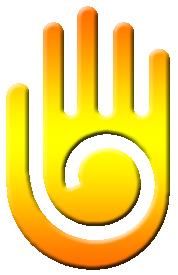
Paul Manley, D.O. (ESO 1980), M.A.O.(Manip),
Registered Osteomyologist, RSM (Royal Society of Medicine)
Specialist in the treatment of Musculo-skeletal problems
Location: 33 Chalton St, London NW1 1JD (Close to Kings Cross and Euston stations)
27/07/2024
Registered Osteomyologist, RSM (Royal Society of Medicine)
Specialist in the treatment of Musculo-skeletal problems
Location: 33 Chalton St, London NW1 1JD (Close to Kings Cross and Euston stations)
27/07/2024
Get help right now for your musculo-skeletal pain - Phone or text 24/7: 07925 616 753
 Over 40 years of experience with musculo-skeletal pain
Over 40 years of experience with musculo-skeletal pain
 Accurate assessment of your condition
Accurate assessment of your condition
 Unique treatment methodology and techniques
Unique treatment methodology and techniques
 Treatment is safe and sensitively applied.
Treatment is safe and sensitively applied.
 Be assured of a thorough, warm, understanding, effective approach when you consult Paul for help.
Be assured of a thorough, warm, understanding, effective approach when you consult Paul for help.
Newsletter 2024
Over the years I have noticed that patients tend to recommend new patients to me who are suffering from a similar condition. For example someone with a wrist problem will send someone with a wrist problem to me, a low back patient will send me a friend or colleague with a low back problem etc.
Many people do not realize the vast array of conditions that I successfully treat. Thus I have compiled the list below in order that you all are aware of the range of conditions that I regularly diagnose and treat.
Over the past few years I have been teaching workshops to the members of my association. Subjects include Diagnosis and treatment techniques for the entirety of joints, muscles and tendons as well as much more.
Over the years I have noticed that patients tend to recommend new patients to me who are suffering from a similar condition. For example someone with a wrist problem will send someone with a wrist problem to me, a low back patient will send me a friend or colleague with a low back problem etc.
Many people do not realize the vast array of conditions that I successfully treat. Thus I have compiled the list below in order that you all are aware of the range of conditions that I regularly diagnose and treat.
Over the past few years I have been teaching workshops to the members of my association. Subjects include Diagnosis and treatment techniques for the entirety of joints, muscles and tendons as well as much more.
Back problems
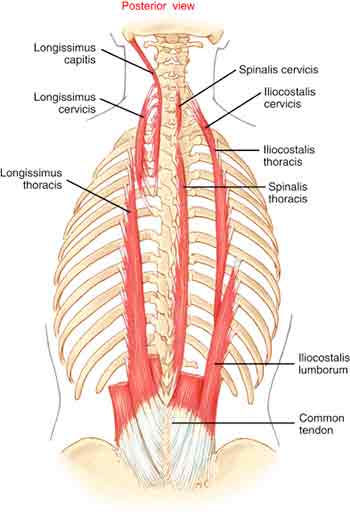 Back pain often means more than just giving you a pain in the back. It can create difficulties with walking, sitting, bending and lifting and can even lead to depression and breathing difficulties. It can also be the cause of pain in the buttocks, groin and legs, sciatica is a good example.
Back pain often means more than just giving you a pain in the back. It can create difficulties with walking, sitting, bending and lifting and can even lead to depression and breathing difficulties. It can also be the cause of pain in the buttocks, groin and legs, sciatica is a good example.
Over 2.8 million adults in the UK of all ages suffer from long term back pain, enduring months and years of discomfort.
Acute pain arises suddenly and is most often due to muscle strain. Usually the spine is pulled out of line and mobility is severely restricted.
The muscles governing the movement in the painful area may have been in a hypertense state for years and have just had their 'last straw' placed on them. A nerve can be 'pinched' but more usually they become compressed due to swelling and/or muscle compression around the nerve roots. Usually there is an area of primary trauma with a secondary spread of pain, aching and stiffness which radiates outwards, upwards and downwards, thereby compounding the problem.
A case which illustrates a typical history is one of a young man in his late thirties who had been suffering from a persistent pain in his mid-ribcage on the right for many years. He worked at a computer for long hours every day. He had scans and had been to many doctors, massagists, Osteopaths and Chiropractors in search of an answer to his pain.
I found hypertonus in the muscles in the area of pain. His overall structure was slightly asymmetrical. He also suffered from an intermittent pain in his left front ribcage. Both this and the mid-back pain in his perception seemed to be aggravated by his digestive problems.
I gave him treatment to all the afflicted areas including the stomach and the pain disappeared. Some follow up sessions have maintained this marked improvement.
Conclusion: many long term problems can be resolved quite quickly given the right diagnosis and treatment.
 Back pain often means more than just giving you a pain in the back. It can create difficulties with walking, sitting, bending and lifting and can even lead to depression and breathing difficulties. It can also be the cause of pain in the buttocks, groin and legs, sciatica is a good example.
Back pain often means more than just giving you a pain in the back. It can create difficulties with walking, sitting, bending and lifting and can even lead to depression and breathing difficulties. It can also be the cause of pain in the buttocks, groin and legs, sciatica is a good example.Over 2.8 million adults in the UK of all ages suffer from long term back pain, enduring months and years of discomfort.
Acute pain arises suddenly and is most often due to muscle strain. Usually the spine is pulled out of line and mobility is severely restricted.
The muscles governing the movement in the painful area may have been in a hypertense state for years and have just had their 'last straw' placed on them. A nerve can be 'pinched' but more usually they become compressed due to swelling and/or muscle compression around the nerve roots. Usually there is an area of primary trauma with a secondary spread of pain, aching and stiffness which radiates outwards, upwards and downwards, thereby compounding the problem.
A case which illustrates a typical history is one of a young man in his late thirties who had been suffering from a persistent pain in his mid-ribcage on the right for many years. He worked at a computer for long hours every day. He had scans and had been to many doctors, massagists, Osteopaths and Chiropractors in search of an answer to his pain.
I found hypertonus in the muscles in the area of pain. His overall structure was slightly asymmetrical. He also suffered from an intermittent pain in his left front ribcage. Both this and the mid-back pain in his perception seemed to be aggravated by his digestive problems.
I gave him treatment to all the afflicted areas including the stomach and the pain disappeared. Some follow up sessions have maintained this marked improvement.
Conclusion: many long term problems can be resolved quite quickly given the right diagnosis and treatment.
Shoulder pain
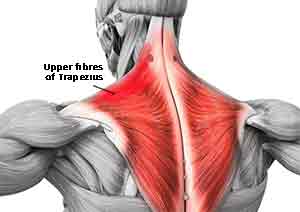
This is pain on the top of the shoulders. The Trapezius muscle is very tight and will ache and give tension all the way up the neck and down into the upper ribcage. Trapezius frequently contributes to headaches when they are tense (hypertonic).
Case: A late middle aged man consulted me for headaches. He had been suffering since he was a teenager with debilitating pain. He had been having treatment from an Osteopath for many years. I found that the upper fibres of his Trapezius were very tense and fibrotic. He also had a mis-alignment of this Atlas vertebrae and of C-5-6. I treated these areas giving vertebral manipulation and specialized muscle technique. His improvement was immediate and in the following weeks exhibited little or no symptoms. Now, three years later he has maintained this improvement.

This is pain on the top of the shoulders. The Trapezius muscle is very tight and will ache and give tension all the way up the neck and down into the upper ribcage. Trapezius frequently contributes to headaches when they are tense (hypertonic).
Case: A late middle aged man consulted me for headaches. He had been suffering since he was a teenager with debilitating pain. He had been having treatment from an Osteopath for many years. I found that the upper fibres of his Trapezius were very tense and fibrotic. He also had a mis-alignment of this Atlas vertebrae and of C-5-6. I treated these areas giving vertebral manipulation and specialized muscle technique. His improvement was immediate and in the following weeks exhibited little or no symptoms. Now, three years later he has maintained this improvement.
Frozen shoulder

It has been my experience that non-surgical Shoulder joint problems such as frozen shoulder, glenoid capsulitis, rotator cuff injury and Biceps tendinitis syndromes are very common and are extremely amenable to a mobilization approach. They range from the acute, sudden swelling of a bursa/joint to long standing cases of frozen shoulder.
Predisposing factors: Muscle 'tethering' by the Pectoralis minor, Subscapularis, Supraspinatus, Infraspinatus and the Teres group. The deep fibres of Biceps are usually involved as well. These tight muscles effectively 'hold' the head of the Humerus too far forwards in the socket and at the same time 'tether' the Humerus such that it cannot be lifted to its full potential range.

It has been my experience that non-surgical Shoulder joint problems such as frozen shoulder, glenoid capsulitis, rotator cuff injury and Biceps tendinitis syndromes are very common and are extremely amenable to a mobilization approach. They range from the acute, sudden swelling of a bursa/joint to long standing cases of frozen shoulder.
Predisposing factors: Muscle 'tethering' by the Pectoralis minor, Subscapularis, Supraspinatus, Infraspinatus and the Teres group. The deep fibres of Biceps are usually involved as well. These tight muscles effectively 'hold' the head of the Humerus too far forwards in the socket and at the same time 'tether' the Humerus such that it cannot be lifted to its full potential range.
Neck pain
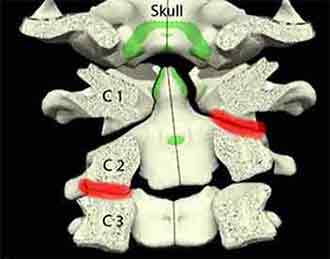
A few weeks ago a young lady came to see me with an acute neck strain. She could hardly move her neck in any direction. She was an actress playing a part in a musical where her character was an evil old lady with a crooked posture. This had induced her problem. After one treatment she was relieved of the pain and following the second session two days later she was completely out of pain and her normal range of mobility was restored.
Long term neck stiffness is often due to a mal-positioning of the vertebrae accompanied by some degree of joint rigidity. The neck muscles are especially prone to hypertonus and as such need to be softened, stretched and mobilized.

A few weeks ago a young lady came to see me with an acute neck strain. She could hardly move her neck in any direction. She was an actress playing a part in a musical where her character was an evil old lady with a crooked posture. This had induced her problem. After one treatment she was relieved of the pain and following the second session two days later she was completely out of pain and her normal range of mobility was restored.
Long term neck stiffness is often due to a mal-positioning of the vertebrae accompanied by some degree of joint rigidity. The neck muscles are especially prone to hypertonus and as such need to be softened, stretched and mobilized.
Headaches
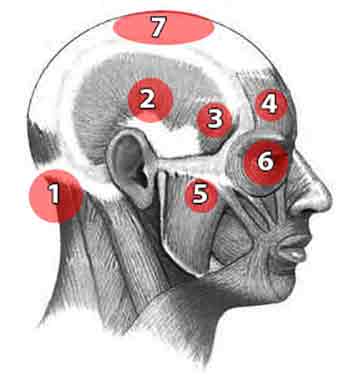 I have suffered from headaches many times during my long life. This means that I have had the
opportunity to observe the physical and physiological factors which create them.
I have suffered from headaches many times during my long life. This means that I have had the
opportunity to observe the physical and physiological factors which create them.
All too often a headache is on one side only as the image shows. They are due to a number of factors most often overlooked by those who are ignorant of the tension patterns which cause them. You do not have to put up with pills, poor diagnosis and inadequate treatments.
There are several common causes of headaches. Here are some of the most prevalent:
Tension headaches: These are by far the most common type of headache and typically result from muscle tension and vertebral displacement. They often cause a mild-to-severe pain that feels like a toothache one side of the head. Migraines: Migraine headaches are more severe and can be accompanied by other symptoms such as nausea, sensitivity to light and sound, and visual disturbances. Sinus headaches: Inflammation or infection of the sinuses can cause pain in the forehead, cheeks, and around the eyes. Sinus headaches are often accompanied by nasal congestion and discharge. Medication overuse headaches: Frequent or excessive use of pain-relieving medications, such as over-the-counter analgesics or prescription drugs, can lead to medication overuse headaches. These headaches often occur when the effects of the medication wear off. Dehydration: Lack of proper hydration can cause headaches. It is important to drink enough water throughout the day to maintain hydration levels. Eye strain: Prolonged or intense use of digital devices, reading, or working in poor lighting conditions can strain the eyes and lead to headaches. Jaw tension: These are normally felt in the temple and over the eyes. Lack of sleep: Insufficient or poor-quality sleep can contribute to headaches. Establishing a regular sleep schedule and practicing good sleep hygiene can help alleviate this cause. Hormonal changes: Fluctuations in hormone levels, such as those experienced during menstruation, pregnancy, or menopause, can trigger headaches in some individuals. Certain foods and drinks: Certain foods and beverages, such as aged cheese, chocolate, caffeine, alcohol, and artificial sweeteners, have been known to trigger headaches in susceptible individuals.
 I have suffered from headaches many times during my long life. This means that I have had the
opportunity to observe the physical and physiological factors which create them.
I have suffered from headaches many times during my long life. This means that I have had the
opportunity to observe the physical and physiological factors which create them.All too often a headache is on one side only as the image shows. They are due to a number of factors most often overlooked by those who are ignorant of the tension patterns which cause them. You do not have to put up with pills, poor diagnosis and inadequate treatments.
There are several common causes of headaches. Here are some of the most prevalent:
Tension headaches: These are by far the most common type of headache and typically result from muscle tension and vertebral displacement. They often cause a mild-to-severe pain that feels like a toothache one side of the head. Migraines: Migraine headaches are more severe and can be accompanied by other symptoms such as nausea, sensitivity to light and sound, and visual disturbances. Sinus headaches: Inflammation or infection of the sinuses can cause pain in the forehead, cheeks, and around the eyes. Sinus headaches are often accompanied by nasal congestion and discharge. Medication overuse headaches: Frequent or excessive use of pain-relieving medications, such as over-the-counter analgesics or prescription drugs, can lead to medication overuse headaches. These headaches often occur when the effects of the medication wear off. Dehydration: Lack of proper hydration can cause headaches. It is important to drink enough water throughout the day to maintain hydration levels. Eye strain: Prolonged or intense use of digital devices, reading, or working in poor lighting conditions can strain the eyes and lead to headaches. Jaw tension: These are normally felt in the temple and over the eyes. Lack of sleep: Insufficient or poor-quality sleep can contribute to headaches. Establishing a regular sleep schedule and practicing good sleep hygiene can help alleviate this cause. Hormonal changes: Fluctuations in hormone levels, such as those experienced during menstruation, pregnancy, or menopause, can trigger headaches in some individuals. Certain foods and drinks: Certain foods and beverages, such as aged cheese, chocolate, caffeine, alcohol, and artificial sweeteners, have been known to trigger headaches in susceptible individuals.
Hip mobilization
Often the pain that we associate with hip joint problems is not due to hip joint degeneration. Patients often arrive for a consultation having been informed by their doctor that they have a 'hip problem'. All too often the patients hip joints are quite healthy and yet they are suffering from pain and immobility around the hip and groin, sometimes affecting the knee area also.
In my experience such 'soft tissue' patterns which restrict movement are reversible, but if left without the proper physical therapy can lead to hip degeneration after many years. thus, such symptoms arising in the soft tissues are often precursors for hip problems later on and are best treated right from the beginning of this potentially pathological process. Specialized hip techniques which stretch, tone and deeply massage the affected structures will prevent the majority from progressive worsening.
Even when X-rays reveal pathology such as a loss of joint space in the hip, the condition can be helped greatly and reversed such that the space will increase and joint fluid essential for the health of the hip will return to a degree whereby the patient remains comfortable and fully functional for many years to come.
Often the pain that we associate with hip joint problems is not due to hip joint degeneration. Patients often arrive for a consultation having been informed by their doctor that they have a 'hip problem'. All too often the patients hip joints are quite healthy and yet they are suffering from pain and immobility around the hip and groin, sometimes affecting the knee area also.
In my experience such 'soft tissue' patterns which restrict movement are reversible, but if left without the proper physical therapy can lead to hip degeneration after many years. thus, such symptoms arising in the soft tissues are often precursors for hip problems later on and are best treated right from the beginning of this potentially pathological process. Specialized hip techniques which stretch, tone and deeply massage the affected structures will prevent the majority from progressive worsening.
Even when X-rays reveal pathology such as a loss of joint space in the hip, the condition can be helped greatly and reversed such that the space will increase and joint fluid essential for the health of the hip will return to a degree whereby the patient remains comfortable and fully functional for many years to come.
Pregnancy related pain
Most often pregnancy is marred by pain occurring in the muscles which join the leg to the pelvis e.g. Rectus femoris. Sciatica can occur if there is compression in the lower back, muscle tension in the Piriformis muscle and sometimes pressure from the baby laying on the Sciatic nerve.
Most often pregnancy is marred by pain occurring in the muscles which join the leg to the pelvis e.g. Rectus femoris. Sciatica can occur if there is compression in the lower back, muscle tension in the Piriformis muscle and sometimes pressure from the baby laying on the Sciatic nerve.
Wrist and hand pain

Problems involving the wrist and hand are increasingly common. They are often due to a fall or fracture and also due to repetitive strain syndromes. Sometimes they involve an arthritic pathology. Mostly they are amenable to mobilization of the joints and stretching of the tendons and muscles of the wrist and hand. I have special expertise in this area having treated many classical musicians for example.

Problems involving the wrist and hand are increasingly common. They are often due to a fall or fracture and also due to repetitive strain syndromes. Sometimes they involve an arthritic pathology. Mostly they are amenable to mobilization of the joints and stretching of the tendons and muscles of the wrist and hand. I have special expertise in this area having treated many classical musicians for example.
Repetitive Strain Injury Syndromes
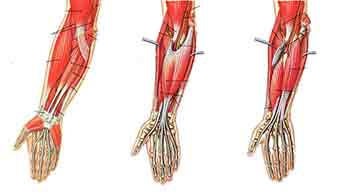
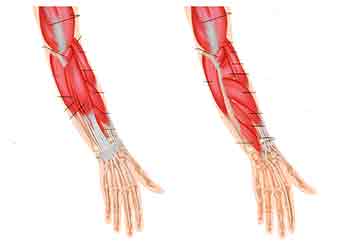
Look at the incredible array of muscles in your forearm. I still marvel at the complexity which enables us to perform so many functions with our hands.
I had a case a month ago of a young guitarist who could no longer use his left little finger properly. I attended to the muscles and tendons which control that finger and improvement followed immediately. With computer workers I will examine their workstation set up and habits especially of mouse usage. This approach combined with my specialized techniques all to often bring about a rapid improvement.


Look at the incredible array of muscles in your forearm. I still marvel at the complexity which enables us to perform so many functions with our hands.
I had a case a month ago of a young guitarist who could no longer use his left little finger properly. I attended to the muscles and tendons which control that finger and improvement followed immediately. With computer workers I will examine their workstation set up and habits especially of mouse usage. This approach combined with my specialized techniques all to often bring about a rapid improvement.
Knee problems

A late middle aged tennis coach who weighed 20 stone (280 pounds) consulted me for his severely swollen semi-arthritic right knee. He was scheduled for a knee replacement. I got to work and increased the mobility, the swelling and inflammation reduced and he found after several sessions that he was feeling much better. He is now back at work playing comfortably. There are many diagnoses which are gross and generalized, non-specific regarding knee joint problems. I find that they miss the point with most knee problems. Doctors like drugs and knives to cure a lot of conditions where conservative methods such as mine will often prevent and reverse such problems.

A late middle aged tennis coach who weighed 20 stone (280 pounds) consulted me for his severely swollen semi-arthritic right knee. He was scheduled for a knee replacement. I got to work and increased the mobility, the swelling and inflammation reduced and he found after several sessions that he was feeling much better. He is now back at work playing comfortably. There are many diagnoses which are gross and generalized, non-specific regarding knee joint problems. I find that they miss the point with most knee problems. Doctors like drugs and knives to cure a lot of conditions where conservative methods such as mine will often prevent and reverse such problems.
Ankle and foot pain
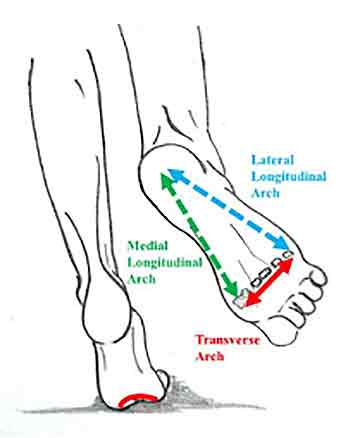
Much misunderstood, the foot is of course the foundation for all that rests upon it. The foot is a composite of many bones and tendons most of which arise from the calf and front of the shin. Mostly what happens is a collapse of the arch. This due to the design that you were born with and due to shoes which do not support the heel properly. People with a lordosis (forward arching of the low back) will have increased inner rotation of the knees and a consequent dropping of the foot arch. There is a long list of conditions that affect the feet, too many to list here.
Tennis and golfers Elbow
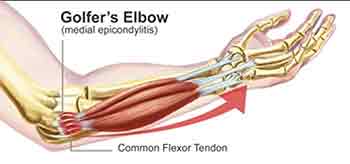
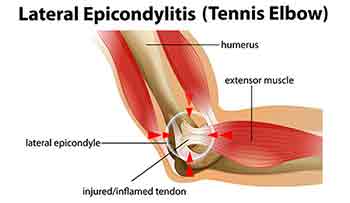
These conditions are usually described as above but are usually due to the attachment of the tendons where they meet the elbow. They will radiate pain all around one side or the other. This common condition does not involve inflammation or swelling of the elbow joint and is amenable to mobilization techniques combined with softening of the attachments. Pain can also extend along the forearm.


These conditions are usually described as above but are usually due to the attachment of the tendons where they meet the elbow. They will radiate pain all around one side or the other. This common condition does not involve inflammation or swelling of the elbow joint and is amenable to mobilization techniques combined with softening of the attachments. Pain can also extend along the forearm.
Abdominal conditions
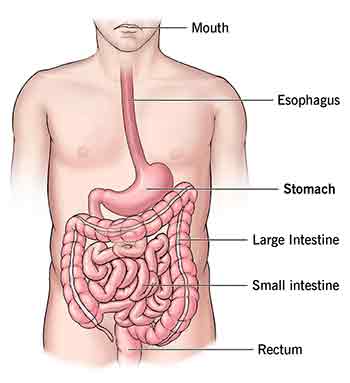
The abdomen is frequently under a lot of pressure (intra-abdominal pressure). This can be the result of sluggish digestion or vice-versa. Many digestive and bowel problems can be significantly relieved using techniques which can reduce such pressure, abdominal massage being one of them. The intestines can become blocked and kinked, they can have areas which produce colic and discomfort. The abdomen holds a lot of emotional tension which can feed back and affect the behavior of the individual, ranging from increased anxiety to altered mental states if the 'Biome' is affected by bacterial overgrowth.

The abdomen is frequently under a lot of pressure (intra-abdominal pressure). This can be the result of sluggish digestion or vice-versa. Many digestive and bowel problems can be significantly relieved using techniques which can reduce such pressure, abdominal massage being one of them. The intestines can become blocked and kinked, they can have areas which produce colic and discomfort. The abdomen holds a lot of emotional tension which can feed back and affect the behavior of the individual, ranging from increased anxiety to altered mental states if the 'Biome' is affected by bacterial overgrowth.
Nerve conditions
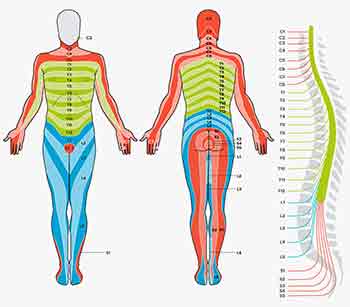
We can all experience nerve related symptoms. Ranging from pins and needles, numbness and partial paralysis of muscles and limbs. Most of these common symptoms can be relieved by the correct diagnosis and treatment. The more serious central nervous system conditions are more problematic but can still be greatly helped especially with their secondary symptoms such as weakness, loss of co-ordination and worse. The most common nerve related symptom is pins and needles in the hand. This may be due to a number factors and is often mis-diagnosed as carpal tunnel syndrome.

We can all experience nerve related symptoms. Ranging from pins and needles, numbness and partial paralysis of muscles and limbs. Most of these common symptoms can be relieved by the correct diagnosis and treatment. The more serious central nervous system conditions are more problematic but can still be greatly helped especially with their secondary symptoms such as weakness, loss of co-ordination and worse. The most common nerve related symptom is pins and needles in the hand. This may be due to a number factors and is often mis-diagnosed as carpal tunnel syndrome.
Orthopedic assessment
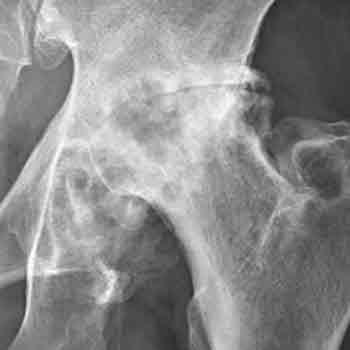
Orthopedics is the study of the bones, joints and muscles which enable us to move around. In medicine it is a specialization whose diagnostic framework can pre-determine whether a condition needs an operation or not. It is a vast realm of knowledge and must be taken into account each time a patient visits me.

Orthopedics is the study of the bones, joints and muscles which enable us to move around. In medicine it is a specialization whose diagnostic framework can pre-determine whether a condition needs an operation or not. It is a vast realm of knowledge and must be taken into account each time a patient visits me.
Thank you for reading this far. I hope that you now have a fuller picture of what I can do for people.
If you know of anyone that I can help, please let them know, I depend on personal recommendations.
Thank you,
Paul Manley
If you know of anyone that I can help, please let them know, I depend on personal recommendations.
Thank you,
Paul Manley
What is RSI - Repetitive Strain Injury?
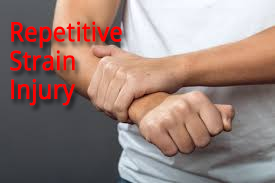 RSI is a general term used to describe a primary cause of a condition involving muscles and tendons. It can also indicate an aggravating factor of a pre-existing condition. It refers to the repeated use of particular muscle groups as causative and/or aggravating factors. Read more....
RSI is a general term used to describe a primary cause of a condition involving muscles and tendons. It can also indicate an aggravating factor of a pre-existing condition. It refers to the repeated use of particular muscle groups as causative and/or aggravating factors. Read more....
Treatment methods
Include deep massage and stretching of muscles and fascia. Paul also uses Trigger point therapy and Myo-fascial release in order to stretch and soften tense, hypertonic muscles coupled with joint mobilisation through very precise, passive techniques.This reduces muscle spasm, increases mobility and creates a healthier state in which damaged tissues can heal and adapt more efficiently.
His methods are individually tailored to take into account the many differences between each persons’ condition and sensitivities.
Paul will do his utmost to:
1. Get you out of immediate pain.
2. Reshape your skeleton, joints and muscles into a more mechanically symmetrical structure.
3. Restore mobility, co-ordination, muscle strength and increase postural/ergonomic awareness.
1. Get you out of immediate pain.
2. Reshape your skeleton, joints and muscles into a more mechanically symmetrical structure.
3. Restore mobility, co-ordination, muscle strength and increase postural/ergonomic awareness.
1980: Began practice at 35a Welbeck Street, London, W1.
1981: I was Technical Advisor to the ‘Vogue book of exercise’
1981: I taught ‘The Anatomy and Physiology of movement’ for dance teachers.
1986: As a result of five years of research into the hydrodynamics of intracranial physiology, I had an article published in the Journal of Alternative Medicine This was based on research into breathing patterns and their effects on intracranial pressure patterns.
1993-1995: Another article: Cranial osteopathy and the Pediatric Craniopathies was published by Bastyr University, Journal of Naturopathic Medicine ( Oregon ), and The New Zealand Journal of Osteopathy and by Temple University ( Philadelphia), Frontier Perspectives.
1989-1995: I gave seminars in New York, Philadelphia and Connecticut on 'An Osteopathic approach to intracranial physiology'. I was asked to join a clinic in Philadelphia and Danbury, Connecticut as an ‘expert’ diagnostician. These were short stints, I could not leave my London practice for too long.
2000: Around 2500 seasoned Osteopaths decided to leave the Osteopathic profession disgruntled with the new regime. Thus, I and many others joined the Association of Osteomyologists and various other organisations.
2005: I created my clinic website replete with interactive anatomy illustrations: www.paulmanley.org
2007: I was invited to give a lecture to Post-graduate Voice teachers at the Royal Academy of Music. I turned this lecture into webpages and can be viewed here: voice
2008 to present: working in full time practice in Central London.
1981: I was Technical Advisor to the ‘Vogue book of exercise’
1981: I taught ‘The Anatomy and Physiology of movement’ for dance teachers.
1986: As a result of five years of research into the hydrodynamics of intracranial physiology, I had an article published in the Journal of Alternative Medicine This was based on research into breathing patterns and their effects on intracranial pressure patterns.
1993-1995: Another article: Cranial osteopathy and the Pediatric Craniopathies was published by Bastyr University, Journal of Naturopathic Medicine ( Oregon ), and The New Zealand Journal of Osteopathy and by Temple University ( Philadelphia), Frontier Perspectives.
1989-1995: I gave seminars in New York, Philadelphia and Connecticut on 'An Osteopathic approach to intracranial physiology'. I was asked to join a clinic in Philadelphia and Danbury, Connecticut as an ‘expert’ diagnostician. These were short stints, I could not leave my London practice for too long.
2000: Around 2500 seasoned Osteopaths decided to leave the Osteopathic profession disgruntled with the new regime. Thus, I and many others joined the Association of Osteomyologists and various other organisations.
2005: I created my clinic website replete with interactive anatomy illustrations: www.paulmanley.org
2007: I was invited to give a lecture to Post-graduate Voice teachers at the Royal Academy of Music. I turned this lecture into webpages and can be viewed here: voice
2008 to present: working in full time practice in Central London.
Article published in the Journal of Natural Medicine on respiratory waves and their influence
on the pressure waves of the Cerebro-spinal fluid (CSF).
Measurement of cranial expansion and contraction using strain gauge monitoring. Static method and fluid driven.
Article published in three different journals globally on Infantile Craniopathies and Sudden Infant Death Syndrome.
Brain stem control of activation levels and the effect on the central and peripheral nervous system resting potential.
The effect of posture on the tensility of the spinal cord and meninges.
I had the pleasure of discovering pre-capillary sphincters in the higher mammalian cerebral cortex. This topic was much debated across the world as to whether these micro-sphincters existed in the higher mammalian brain. Yes they do.
I devised the concept of 'functional columns' in the human cerebral cortex based on micro-electrical fields and the average densities of the nerve endings and capillaries.
I also developed the concept of a 'Pineal diaphragm'. This acts as valve and sensor which has an influence of the balance of CSF pressures between the central and peripheral CSF circulatory divisions.
Article on the importance of the Pineal gland in governing our circadian cycles.
Doppler evaluation of vascular stenosis and study of trans-cranial doppler simulators and machinery.
The importance of the fast fourier transform in interpreting doppler signals.
Non-invasive chelation therapy for clearing out the arteries.
Lectures and seminars on intra-cranial physiology in New York, Philadelphia and Connecticut.
The effects of intrathoracic and intra-abdominal pressure on intracranial pressure and blood pressure.
The effect of breathing deeply 10 times on blood pressure. Systolic drops by 10mm and diastolic by 5mm.
The neuro-physiology of behavioural conditioning, genetics and state of the Mother whilst pregnant (stress).
Cloningers studies of 'biological conditioning' dividing the topics into three typologies as determinants of behavioural tendencies.
The Cerebral architectonics of the human cerebral cortex as posited by Luria.
The 'Four components' of the intracranial physiology'. A 30,000 word treatise.
Measurement of cranial expansion and contraction using strain gauge monitoring. Static method and fluid driven.
Article published in three different journals globally on Infantile Craniopathies and Sudden Infant Death Syndrome.
Brain stem control of activation levels and the effect on the central and peripheral nervous system resting potential.
The effect of posture on the tensility of the spinal cord and meninges.
I had the pleasure of discovering pre-capillary sphincters in the higher mammalian cerebral cortex. This topic was much debated across the world as to whether these micro-sphincters existed in the higher mammalian brain. Yes they do.
I devised the concept of 'functional columns' in the human cerebral cortex based on micro-electrical fields and the average densities of the nerve endings and capillaries.
I also developed the concept of a 'Pineal diaphragm'. This acts as valve and sensor which has an influence of the balance of CSF pressures between the central and peripheral CSF circulatory divisions.
Article on the importance of the Pineal gland in governing our circadian cycles.
Doppler evaluation of vascular stenosis and study of trans-cranial doppler simulators and machinery.
The importance of the fast fourier transform in interpreting doppler signals.
Non-invasive chelation therapy for clearing out the arteries.
Lectures and seminars on intra-cranial physiology in New York, Philadelphia and Connecticut.
The effects of intrathoracic and intra-abdominal pressure on intracranial pressure and blood pressure.
The effect of breathing deeply 10 times on blood pressure. Systolic drops by 10mm and diastolic by 5mm.
The neuro-physiology of behavioural conditioning, genetics and state of the Mother whilst pregnant (stress).
Cloningers studies of 'biological conditioning' dividing the topics into three typologies as determinants of behavioural tendencies.
The Cerebral architectonics of the human cerebral cortex as posited by Luria.
The 'Four components' of the intracranial physiology'. A 30,000 word treatise.
Over time I have found myself
specialising in Musicians problems, but general practice dealing with low backs, necks, shoulders and legs is my everyday love.
Many musicians suffer debilitating conditions which will affect their lives as
performers. As a fellow musician since I was 13 I have every sympathy for them
and have taken a very special interest in Repetitive Strain Syndromes not only
in musicians but also in the general public.
The correlation between what one is habitually doing with their body and the resultant pain patterns has become very clear over my years of studying and questioning patients. Many have found relief through what I deem to be simple, common sense observations. Patients will often present with fairly typical and predictable pain patterns. The noting of these patterns has inspired the creation of the ‘Pain Maps’ used in my online diagnostic projects.
If a patient comes to me who has exhausted all other avenues I will try to research their condition.
As an example a young Turkish Laboratory worker came to see me on the recommendation of her Mother who had seen me some 30 years earlier because I had researched the medications she was taking and brought about a ‘cure’ for her skin condition. Her daughter had been working in a lab in Didcot UK where she was accidentally exposed to a deadly gas. She had consulted a lot of doctors who scratched their heads in puzzlement. She was suffering from fatigue, loss of appetite, loss of co-ordination and dizziness rather like Multiple Sclerosis. I researched specifically and soon found the answer buried in the metabolic pathways of action of this toxin. I prescribed a particular amino acid and gave her some treatment to her cranium and neck and bingo! Her condition improved back to normal in around two weeks.
There are so many cases which stick in my mind. There was a young man who emailed me from Brazil. He had suffered from cerebral palsy which had contractured his limbs to the degree that it was now very difficult and painful to walk. He had been a beggar on the streets of Rio and had been befriended by a man who gave him a career in real estate. Now he was travelling to Italy to do a deal having stopped over in London to see me. I gave him the first treatment and upon his return for a second he told me with great joy that he had never walked so well in all his life. I gave him another and he messaged me from Italy some weeks later to thank me, he still felt the marked improvement. What I did with him was simple for me, obvious and very much worth it for him.
A glass of ice cold water is a miracle in the middle of the Sahara desert, the same refreshment is normal in Mac Donalds. Miracles can be little more than a rarity in an otherwise barren landscape shrouded in medical mystery.
I have treated Hollywood stars, MPs, nurses, GP’s, CEO’s, cleaners, programmers, athletes, writers, composers and of course many world famous musicians. Occasionally I have had the pleasure of helping torture victims.
More recently I have been using my programming skills to create a series of online diagnostic projects: workplacewellness.london, painmapper.co.uk. and musiciansclinic.co.uk
There are many who get benefit from what I do and the way that I do it who have also exhausted all other options. But for the many who know me, I am their first port of call, for others, a refuge in the wilderness of medical double-speak.
I am here if you need me
Paul Manley
The correlation between what one is habitually doing with their body and the resultant pain patterns has become very clear over my years of studying and questioning patients. Many have found relief through what I deem to be simple, common sense observations. Patients will often present with fairly typical and predictable pain patterns. The noting of these patterns has inspired the creation of the ‘Pain Maps’ used in my online diagnostic projects.
If a patient comes to me who has exhausted all other avenues I will try to research their condition.
As an example a young Turkish Laboratory worker came to see me on the recommendation of her Mother who had seen me some 30 years earlier because I had researched the medications she was taking and brought about a ‘cure’ for her skin condition. Her daughter had been working in a lab in Didcot UK where she was accidentally exposed to a deadly gas. She had consulted a lot of doctors who scratched their heads in puzzlement. She was suffering from fatigue, loss of appetite, loss of co-ordination and dizziness rather like Multiple Sclerosis. I researched specifically and soon found the answer buried in the metabolic pathways of action of this toxin. I prescribed a particular amino acid and gave her some treatment to her cranium and neck and bingo! Her condition improved back to normal in around two weeks.
There are so many cases which stick in my mind. There was a young man who emailed me from Brazil. He had suffered from cerebral palsy which had contractured his limbs to the degree that it was now very difficult and painful to walk. He had been a beggar on the streets of Rio and had been befriended by a man who gave him a career in real estate. Now he was travelling to Italy to do a deal having stopped over in London to see me. I gave him the first treatment and upon his return for a second he told me with great joy that he had never walked so well in all his life. I gave him another and he messaged me from Italy some weeks later to thank me, he still felt the marked improvement. What I did with him was simple for me, obvious and very much worth it for him.
A glass of ice cold water is a miracle in the middle of the Sahara desert, the same refreshment is normal in Mac Donalds. Miracles can be little more than a rarity in an otherwise barren landscape shrouded in medical mystery.
I have treated Hollywood stars, MPs, nurses, GP’s, CEO’s, cleaners, programmers, athletes, writers, composers and of course many world famous musicians. Occasionally I have had the pleasure of helping torture victims.
More recently I have been using my programming skills to create a series of online diagnostic projects: workplacewellness.london, painmapper.co.uk. and musiciansclinic.co.uk
There are many who get benefit from what I do and the way that I do it who have also exhausted all other options. But for the many who know me, I am their first port of call, for others, a refuge in the wilderness of medical double-speak.
I am here if you need me
Paul Manley
So, whether it is your low back, ankle, sciatica, strained neck, repetitive strain disorder, the knuckle on your left little finger or simply tired, tight muscles almost anywhere in your body, call Paul and make an appointment, or if you simply wish to discuss a problem please give him a call or text right now.
Fees
£120 for a one hour session (the first session is always one hour)
£90 for a 45 minute session £60 for a 30 minute session |
'Give your body a gift for life.'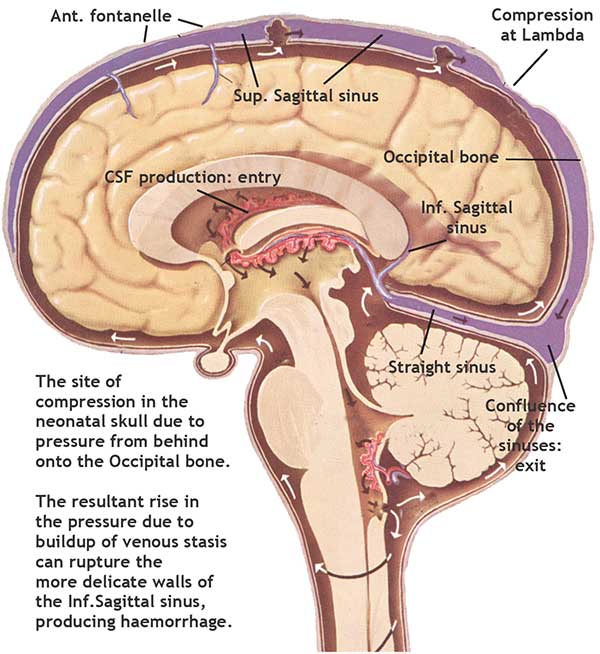 The physiological basis for Enhanced Cranial technique.
The physiological basis for Enhanced Cranial technique.
The brain pulsates as we breath and with our heartbeat (watch the movie of this amazing new discovery). This makes the cerebro-spinal fluid flow and mix throughout our central nervous system. Thus when we increase our heart rate it 'clears' our head.  Research on the beneficial effects of massage.
Research on the beneficial effects of massage. Research collated from around the world. 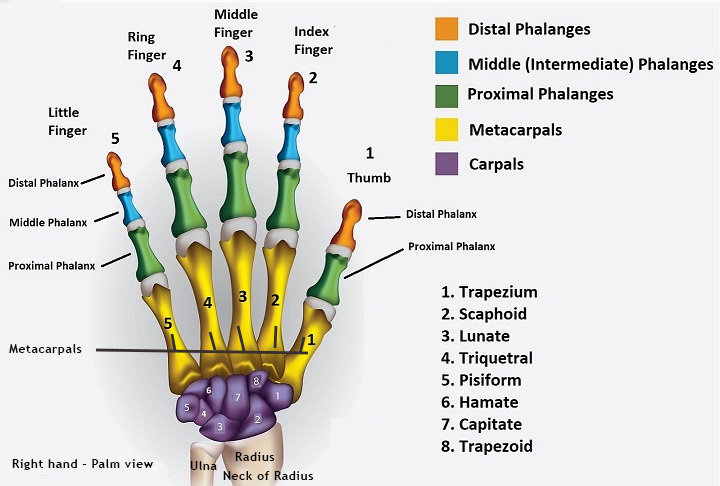 Common wrist and finger joint problems Common wrist and finger joint problems The most vulnerable joint in the body. 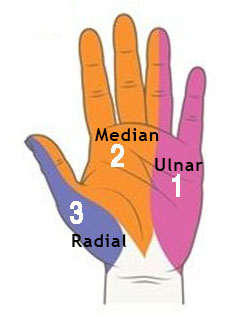 Do you have Carpal Tunnel Syndrome? Do you have Carpal Tunnel Syndrome? A commonly mis-diagnosed problem.  Euronews: Generation Z+ Euronews: Generation Z+ How those of us in "Generation Z+" are facing the challenge of digital ageism.  Musicians Clinic
Musicians Clinic Detailed information about conditions specific to musicians which can blight their lives. Help and advice.  Dangerous hairdressers !
Dangerous hairdressers ! Migraines and neck strain as caused by being shampooed in a backwash sink.  Trigger point therapy
Trigger point therapyDe-mystifies trigger point therapy and explains when and how it helps with all sorts of problems from RSI to shin splints.  The Pain Mapper Suite
The Pain Mapper Suite Pain Mapper provides simple illustrated reports and pain tracker diaries which will tell you much more of what you need to know about your particular pain.  Workplace Wellness
Workplace Wellness Workplace Wellness is a unique, cost-effective method of assessing your employees' musculo-skeletal health and productivity. |
London location: 33 Chalton St, London NW1 1JD (Close to Kings Cross and Euston stations)